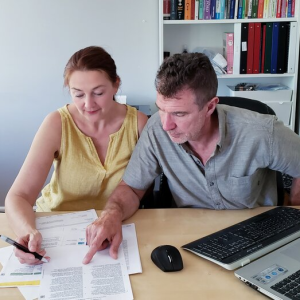Legislators are concerned that the newly implemented federal retirement savings scheme may encourage government employees to invest in Chinese businesses.
This week, six Republican senators requested a retirement savings plan similar to a 401(k) to delay the establishment of a mutual fund due to concerns that government employees may invest in Chinese businesses.
The requirement was established just as the Thrift Savings Plan (TSP) began transitioning to a service provider to handle the mutual fund scheme. A week before the new regime, which incorporates a phone gadget and other technologies, is slated to go live.
Members of the TSP’s retirement plan can choose from more than 5,000 mutual funds, some of which are devoted to ecological, social, and governance practice concerns. The TSP’s website is now down for most of its features due to the organization’s move to a different recordkeeper.
Because there is a possibility that certain mutual funds may have holdings in “Chinese entities,” a group of six Republican senators wrote a letter to the FRTIB, which is the authority that oversees the Thrift Savings Plan (TSP). In the letter, they requested that the authority halt or delay the provision of mutual funds to TSP participants.
For federal TSP members, “we write to express serious concern over the FRTIB’s intention to create a new mutual fund scheme beginning next month.” A move like this could reveal the retirement funds of U.S. federal workers and service personnel to firms in China, such as those presently authorized by the U.S. Government for human rights violations or otherwise delisted for the danger they pose to the United States’ global defense.
TSP officials say it’s unfair that government workers can’t invest in the same corporations and market indexes as the public. They urged the Treasury Department to ban Americans from investing in banned or threatening businesses.
In their email, TSP’s argument that tracking more than 5,000 mutual funds would be “extremely expensive” was questioned by the senators. The government should at least delay adoption until they discover a means to do it.
It is highly improbable that your panel could guarantee that approximately 5,000 index funds are independent of Chinese firms that present a danger to American global defense or businesses allegedly involved in human rights violations by the Chinese Communist Party, or businesses that otherwise neglect the necessary financial trajectories given the large number of Chinese companies involved in this decision and the FRTIB’s past efforts to include such firms in TSP.
TSP representative Kim Weaver said the mutual fund window is “totally voluntary,” and TSP participants won’t need mutual funds.
Contact Information:Email: mackhales@bellsouth.netPhone: 7705402211Bio: Mack Hales has spent the past 4 decades helping clients prepare for retirement and manage their finances successfully. He also works with strategies that help clients put away much more money for their retirement than they could in an IRA or even a 401k. We involve the client’s CPA and/or their tax attorney to be sure the programs meet the proper tax codes.
Mack works with Federal Employees to help them establish the right path before and after retirement. The goal is to help the client retire worry-free with as much tax-free income as possible and no worries about money at risk of market loss during retirement.
Mack has resided in Gainesville, GA since 1983, so this is considered home. Mack is married to his wife of 51 years, has two boys and five grandchildren.Disclosure: Investment advisory services are offered through BWM Advisory, LLC (BWM). BWM is registered as an Investment Advisor located in Scottsdale, Arizona, and only conducts business in states where it is properly licensed, notice has been filed, or is excluded from notice filing requirements. This information is not a complete analysis of the topic(s) discussed, is general in nature, and is not personalized investment advice. Nothing in this article is intended to be investment advice. There are risks involved with investing which may include (but are not limited to) market fluctuations and possible loss of principal value. Carefully consider the risks and possible consequences involved prior to making any investment decision. You should consult a professional tax or investment advisor regarding tax and investment implications before taking any investment actions or implementing any investment strategies.







